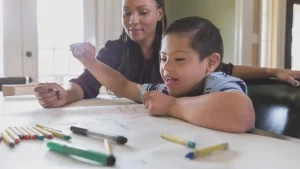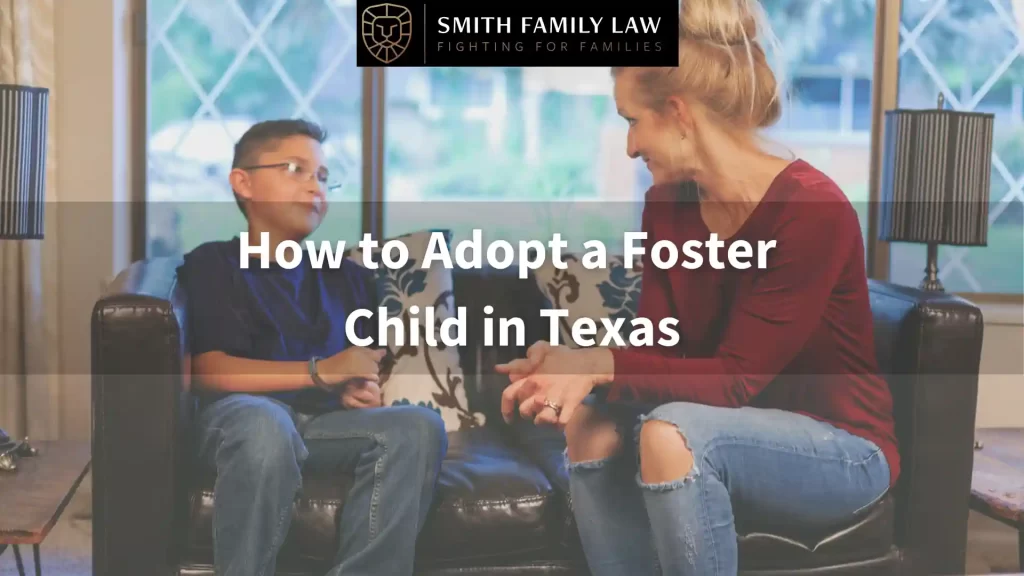There are numerous options available to people who want to expand their families. From international to private adoptions, there is no shortage of infants and children looking for a loving home to call their own. However, if you want to help children a little closer to home, you may want to consider adopting a foster child.
Texas places specific requirements on those seeking to adopt a foster child. Navigating the Texas Department of Family and Protective Services foster system can feel overwhelming. At Smith & Bledsoe Family Law, our knowledgeable adoption attorneys have the skills and resources to help you pursue a foster child adoption in Texas.
How does adopting a foster child work in Texas? Our legal team has the answers you need to get started.
Foster Child Adoption in Texas
What is foster care? When a child cannot live safely at home, Texas Child Protective Services (CPS) steps in to help. CPS prioritizes getting children out of dangerous situations and finding stable family members and relatives to live with until their situation improves. However, foster families enter the picture when family and friends are unavailable, and no one can offer the child a safe and stable living environment. Foster care is a temporary living arrangement that allows in-need children to find a safe and secure home.
Although foster care is typically a temporary living arrangement for the child, it can become permanent when the foster parent seeks to adopt the child. Data from the Health and Human Services Department shows that in 2021, there were 28,042 children in the Texas foster care system.
Texas Foster Care Adoption Process
Becoming a foster/adoptive parent is a life-changing decision. Children in the Texas foster care system come from various backgrounds and living situations and may have special needs. The Texas Department of Family and Protective Services wants to ensure that those interested in becoming foster and adoptive parents have the resources and tools they need to understand their commitment.
The state requires individuals to attend an information meeting outlining what it means to be a foster parent in Texas to start becoming a foster/adoptive parent. Potential foster parents must also meet the state’s basic requirements, including:
- Must be 21 years of age
- Must be mature and financially stable
- Must share information regarding their lifestyle and background
- Provide relative and non-relative references
- Show proof of marriage or divorce when necessary
- Agree to participate in home study
- Submit a complete criminal history background check
- Attend training to learn about issues abused and neglected children face
Soon-to-be foster and adoptive parents must also prove that they:
- Have adequate sleeping space
- Will allow no more than six children in the home, including their own
- Agree to non-physical disciplinary techniques
- Allow fire, health, and safety inspections of their home
- Vaccinate all pets
- Obtain and maintain CPR and First Aid Certifications
- Obtain TB testing
- Attend 20 hours or more of foster training per year
As a foster parent, you become responsible for addressing the needs of a child in the foster care system. It becomes your job to nurture and care for this child, providing a loving and safe environment while advocating for the child’s best interests. Many foster parents develop deep bonds with the children they care for and seek to take the next step, legally adopting the child into their family.
If you meet the foster/adoptive parent requirements, you can apply to adopt a Texas foster child. In addition to your application, you must also submit to a home study. A home study allows a social worker to interview you and your family and assess your living situation, ensuring it is safe for a child.
Texas Adoption Laws for Foster Children
According to Texas law, biological parents’ parental rights must be terminated before another family can legally adopt a foster child. Terminating the biological parent’s parental rights allows the adoptive parents to retain exclusive rights to the child, thereby becoming fully responsible.
Termination of parental rights occurs either voluntarily or involuntarily. Often, it may be up to the Texas Department of Family and Protective Services to initiate the termination of parental rights. Involuntary termination typically occurs when a biological parent endangers the child, engages in criminal conduct, or abuses, abandons, or neglects the child.
In Texas, children 12 years and older must also consent to the adoption. Children can give their consent in writing or during a court appearance.
Adopting a Foster Child with Special Needs

Children with medical conditions and developmental challenges also find themselves in the foster care system and need love and stability. Some children are labeled as “special needs” simply because they are older and are no longer infants or toddlers.
The Texas Department of Family and Protective Services defines a special needs foster child as:
- A child at least six years old
- A child at least two years old who is a member of a racial or ethnic group that exits the foster care system at a slower pace
- The child has a sibling or siblings they need to be placed with
- The child has a verifiable physical, mental, or emotional disability or condition established by a qualified professional
Being responsible for fostering or adopting a child with special needs can be challenging. Since it is more difficult to find families willing to care for a child with special needs, adoptive parents may qualify for financial assistance to cover some of the costs associated with the expenses related to adopting a special needs foster child. The Texas Department of Family and Protective Services also offers postadoption services to families with special needs children, including support groups, referrals to appropriate medical professionals, and case management services.
These services give adoptive parents the resources to help their special needs child adjust and thrive in their new home. They also offer parents an outlet for securing emotional support for themselves and their families.
Reach Out to an Experienced Austin Adoption Attorney for Help
Adopting a Texas foster child is a life-changing decision. Navigating the process and securing the tools and resources you need to make the process a smooth transition for you and your adopted child can be challenging. The legal team at Smith & Bledsoe Family Law is here to help.
Contact our compassionate adoption team at (512) 277-3166 for a complimentary legal consultation.
Related Reading:
